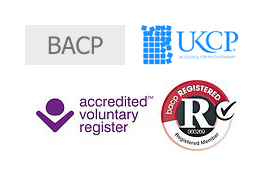About Psychotherapy & Eating Disorders
The professions of psychotherapy and counselling have their roots in both humanistic, and certain philosophical traditions, which grew in following between the 1940s, through to the decade of the sixties, and Freudian psychoanalysis, which became less popular as these traditions developed. The significant popularisation of the awareness movement in the sixties brought with it different approaches to self-development and growth, group and individual models and family therapy. Feminism began to embody 'the personal is political' and this pragmatic sense became a motivational force in women's groups that aimed at consciousness raising; Fat is a Feminist issue by Susie Orbach was widely read and became a seminal text and reading on eating disorders. Counselling became widely available for ethnic groups, company employees and for those with chronic problems such as alcohol addiction, eating disorders and drug addiction.
We owe the richness of approach, and diversification of models and approaches to therapy now, to this period. In 2021 contemporary approaches to mental health have divided between shorter-term therapy such as Cognitive Behavioural Therapy and open-ended approaches which often explore relationship dynamics in greater depth.
In psychodynamic and interpersonal therapies the therapist facilitates an experience for the client which can lead to increased insight. It is different from CBT in that there is space to discover both relational and unconscious process over time and allow for subsequent changes as growth takes place.
Eating Disorders
I have developed an approach to these problems which includes a focus on developmental issues from childhood and teenage years and feminist perspectives, with an understanding of 'personality disorder'. Some clients may have additional issues with depression and alcohol and drug addiction.
I usually see patients after weight restoration in anorexia. The family will find help from an NHS or private agency, or, for older patients who have transferred from CAMHS, the appropriate centre who manage and work with the individual, will be the first port of call. My approach does not include a focus on meal planning and nutrition, but when this may be helpful, I encourage obtaining an appropriate referral from the GP. During this initial phase Cognitive behavioural therapy for anorexia would be the most helpful therapy. I work with those who are already "in recovery" when the young person needs help with their psychosocial and emotional development.
Experiences such as bullying or divorce can disrupt a person, early or in later life, in their sense of self and in their developmental pathway. This may cause a need for extreme safety and predictability which an eating disorder can provide. We all have to make transitions continually in life, and the self can be impeded in its goal when trauma has caused a shock to the personality, effecting self-image. The attempt to repair this is limited by the potentials and resources within. Therapy can help in the management of traumatic and overwhelming feelings and allow the conditions for the person to achieve their potential.
Working psychodynamically means that we confront in the present how these issues have left their mark and continue to cause problems with self-image and the consequent effect on relationships in social life and with those who are closest. The sufferer has a divided sense of self which is split between 'good' and 'bad' self/body, and resolving such a problem is essential. The fear of being seen accompanies the bodily distress, and this lies at the root of a fear of commitment to any course of action or experience which is unpredictable and cannot be controlled.
Testimonial
This is me… This is my testimony…
Well “therapy” as they say is a long and hard journey and mine is no different or was no different. I was for along time telling myself that I did not fit in the “box” and was aware of what was going on, so I was “fine” and did not need to get help. So I started this journey with a push and a shove. What I will say is the process of allowing myself to dissect and digest negative emotions, which were internalised and also projected, allowed myself to stop focusing on the body, which I was looking at in the mirror and started to focus on the internal me.
Psychotherapy was sometimes an uncomfortable process, after all you are baring your soul and your inner most feelings. By building a positive relationship with Anne, and allowing myself to really open up, I was able to make positive changes to my life. These included recognising that negative emotions are acceptable and that I needed to unite the different parts of my personality, which I had so carefully separated. This allowed me to gain a sense of balance and restore my ability to function as a person with negative and positive aspects to my personality. My self-esteem grew as I learned to accept the parts of me that I felt were “bad” or that needed to be buried. I feel that I still have a way to go, but with the support and assistance of Anne I have been able to break a cycle of negative obsessions and begin to live my life. So if you are reading this and see some similarities just give it a try, as this could be the greatest and most empowering thing that you ever do…


